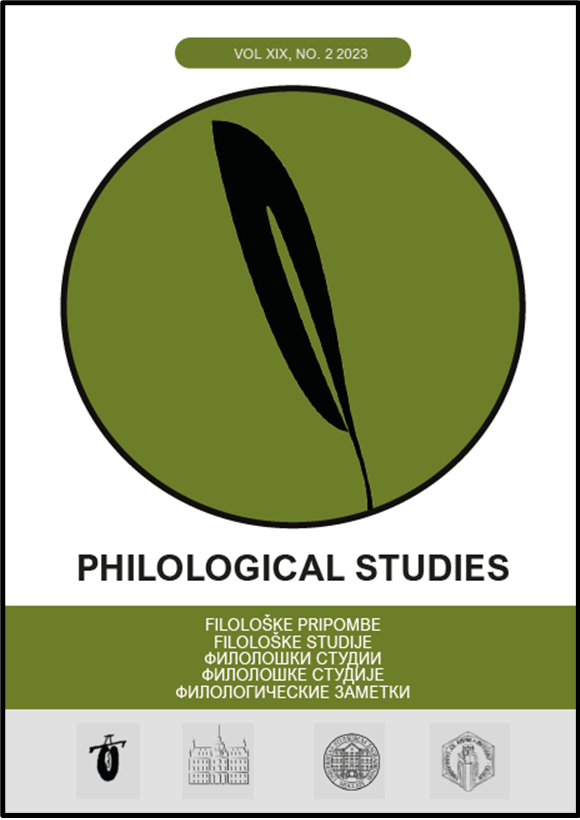VPIV PRIČAKOVA J A USPEŠ OST
Апстракт
The classical study of Pygmalion effect was conducted in 1968 by Rosentahl and Jacobson on elementary school children. They find that teacher expectations can act as self-fulfilling prophecies because students' achievements come to reflect the expectations. Pygmalion studies were also undertaken on nonschool organizations. In the work organizations it was found that people perform better when a leader has high expectations on them and shows confidence in them. Awareness and nonawarenes determinants of Pygmalion effect will be explained as well. Pygmalion Leadership Style and internal-external efficacy model will be presented. This model distinguishes between general and specific self-efficacy and between self-efficacy and collective efficacy. Beside Pygmalion effect the Galatea effect will also be presented, where self-produced expectations influence individuals whose own self-expectations have been raised. The negative impact of low teacher expectations on performance is colled Golem effect.
Downloads
Референци
Eden, D. Self-Fulfilling Prophecies in Organizations/ V J. Greenberg (Ur.), Organizational behavior (str. 91-122). London:
Lawrence Erlbaum Associates, 2003.
Lussier, R. /. in Achua, C. F. Leadership: theory, application, skill building/ Ohio: South-Western College Publishing, 2001.
Pintrich, P. R. in Schunk, D. H. Motivation in education: theory, research, and applications/ Englewood Cliffs: Prentice-Hall,
1996.
Smith, E. R. in Mackie, D. M. Social Psychology/ New York: Worth Publishers, 1995.
Yukl, G. Leadership in Organizations/ New Jersey: Prentice Hall, 2002.
Авторите во списанието претставуваат оригинални дела врз основа на резултатите од сопственото истражување. Лицата кои дале значителен придонес во трудот се наведуваат како коавтори. Заедно со статијата, авторите (и коавторите, доколку ги има) треба да достават пополнет образец за пријава на трудот (Paper Submission Form), со кој се потврдува согласноста на авторот за објавување на трудот.
Списанието прифаќа научни трудови кои претходно не биле објавени. Не се прифаќаат трудови кои во голема мера ги повторуваат претходно објавените трудови на авторите. Повторувањето подразбира и компилација – текст составен од фрагменти од објавена монографија или голем број на претходно објавени статии. Плагијатот не е дозволен, како и прекумерното цитирање на туѓи трудови (една третина или повеќе од целиот труд). Сите цитати, цитирани извадоци и материјали мора да имаат цитирани автори и извори. Ако уделот на туѓиот труд е преголем, се препорачува да се скратат цитатите и да се зголеми обемот на оригиналниот текст.
Авторот треба да ги има сите потребни дозволи за користење на позајмените материјали и материјалите на други автори што ги користи во својот труд (илустрации и слично). Авторот гарантира дека статијата не содржи информации што не подлежат на објавување во отворен печат, вклучувајќи ги и оние што содржат или претставуваат доверливи информации.
Во списокот на литературата се вклучени само делата цитирани во трудот, како и линковите за страниците и изворите од кои е цитирано доколку станува збор за извори од интернет. На авторот му се препорачува да ги наведе во текстот изворите на финансиска поддршка на спроведените истражувања и стипендиите, доколку ги имало. Исто така, може да се изрази благодарност и до колегите кои придонеле или помогнале околу работата на текстот, а кои не се коавтори.
Со доставувањето на ракописот и образецот на апликација до редакцијата, авторот официјално се согласува со објавувањето на неговиот труд во „Филолошки студии“. Авторите се носители на авторски права и ги задржуваат сите права за објавување и користење на статијата. Авторите имаат право да ја повлечат статијата во кое било време до моментот на објавување на сајтот, со тоа што претходно за тоа, по писмен пат, треба да ја известат редакцијата на списанието.
Статиите се објавуваат бесплатно. Содржината е достапна под лиценцијата Creative Commons Attribution-Noncommercial-No Derivative Works 3.0 Unported License.
Издавачка Етика
Редакција
Сите трудови доставени до Редакцијата ги читаат прво нејзините членови и соработници за да се утврди дали се однесуваат тие на релевантната проблематика и дали одговараат на форматот на списанието. Редакцијата на „Филолошки студии“ гарантира дека разгледувањето на доставените трудови и нивните рецензии не зависат од: комерцијални интереси, пол, националност, верски убедувања, политички ставови и други фактори. Единствениот критериум при изборот е академското ниво на трудот.
Во зависност од рецензијата, статијата може веднаш да се прати за објавување, да биде отфрлена или испратена до авторот за измена и за доработка. Во случај на несогласување со забелешките на рецензентот, авторот има право да ги оправда своите ставови. Доколку од рецензентите се добиени контрадикторни мислења, текстот се упатува на трет рецензент или конечната одлука се заснова на гласање на членовите на Редакцијата, по одделното разгледување.
Рецензенти
Статиите испратени до Редакцијата минуваат процес на двојно анонимно рецензирање. Имињата на рецензентите не треба да му бидат познати на авторот на статијата и обратно. Рокот за рецензирање е три-четири седмици. Рецензентите можат да бидат членови на Редакцијата и автори на списанието што објавувале претходно во него. Онаму каде што е неопходно, за рецензенти се назначуваат специјалисти од други: организации, градови и земји.
Рецензентите треба да бидат специјалисти за предметно-тематската област на која се однесува статијата. Редакцијата треба да спречи каков било судир на интереси во врска со дадениот научен труд и со неговиот автор.
Рецензентот е должен да им обрне внимание на членовите на Редакцијата за секоја суштинска сличност или поистоветување меѓу ракописот што се рецензира и која било друга публикација што му е позната. Рецензентот, исто така, е должен да го држи во тајност трудот што му е доверен, да не го пренесува на трети лица ракописот што му е доверен нему за рецензија и пред објавувањето на публикацијата да не ги објавува информациите содржани во него.
Рецензентите треба да дадат објективна, непристрасна и аргументирана процена на трудот. Забелешките треба да бидат формулирани коректно, така што оценувањето на трудот се однесува само на текстот на статијата и на неговата содржина. Рецензијата треба да биде напишана добронамерно, а наведените забелешки имаат за цел да им помогнат на авторите да ги коригираат утврдените недостатоци и да ја подобрат статијата пред да биде објавена таа на веб-страницата на издавачот и пред да биде достапна за пошироката публика.









